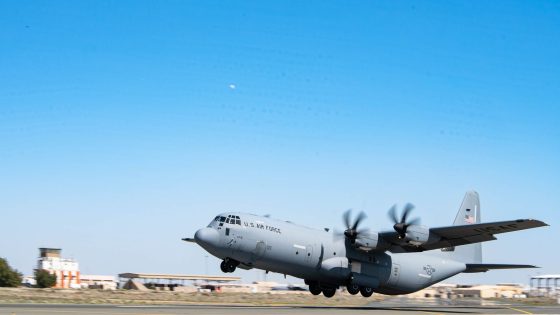For nearly a quarter-century, the story of Copa América was a tale of two constants: Brazil, and an entire continent’s soccer obsession.
From 1997 through 2019, the South American championship was played nine times; and nine different nations — eight of CONMEBOL’s 10 members, plus an invitee, Mexico — made at least one final. Dating back to 1967, eight of the 10 have won it.
Cadences and formats have varied. Chaos has regularly reigned. But for decades, unless Brazil was romping to a title, the tournament would always showcase South American soccer’s breadth of passion and talent. Even teams who failed to qualify for World Cups could — and did — win Copa América. Such was the depth of the field, and the unpredictability of a sport that can be so volatile when so hotly contested.
But here, in 2024, at the 48th Copa América, set to kick off June 20 in the United States, the story feels different.
The superpower, Brazil, has fallen; and depth has dried up.
The tournament has temporarily expanded to welcome six nations from North and Central America and the Caribbean (CONCACAF), including the host, the United States. But the bottom half of CONMEBOL (the 10-team South American confederation) is as weak as it’s been in the 21st century. The declines of Chile, Paraguay and Peru — not to mention Mexico — have shaped a top-heavy field that looks more predictable than usual. Here’s how it stacks up with kickoff approaching.
(In parentheses: Each team’s Elo rating and its title odds at BetMGM, as of June 10.)
Tier 1: The superpowers
The defending champion of everything — Copa América, Finalissima, Mundial — has established itself as the clear favorite. With 22 World Cup-winning players back for more this summer, the squad is virtually untouched. The tactics are well-drilled. The group-stage draw was incredibly kind. And the pressure of past Copa Américas has vanished; Lionel Messi and Co., for perhaps the first time ever, enter a major tournament calm, light and free.
So, what could impede their march to another title? Well, Messi will soon turn 37; his aging legs, at some point, will waver. And there’s always the worry that, with everything already won, the edge and fire that fueled Argentina could wane.
But, if you know anything about Argentine fútbol, you know that both those worries are probably unfounded.
For six-plus years under Tite, the wonderfully astute manager who revived the Seleção post-2016, Brazil was a juggernaut. Over the 18 months since his ouster, defeats and ominous developments have been piling up. Brazil has lost as often as it’s won since the 2022 World Cup. It also lost its star, Neymar, to an ACL tear; then it lost its courted coach, Carlo Ancelotti, who snubbed the Brazilian federation to stay at Real Madrid.
The roster, naturally, is still stocked with talent. The center of defense is strong; Vinicius Junior is magic; and 17-year-old Endrick is waiting to burst onto the international scene off the bench. But the glue that fortified Tite’s teams, Casemiro, has faded — and won’t be at the Copa América. His midfield replacements — Douglas Luiz, Bruno Guimarães, João Gomes and Andreas Pereira — come exclusively from the English Premier League’s mid-table. To most national teams, of course, they’d still represent an embarrassment of riches; but can they jell with Lucas Paquetá and meet Brazil’s high standards? Title hopes probably depend on the answer.
Tier 2: The contenders
Unbeaten in 22 games and over two years, Colombia looks menacing.
Its squad, to some, might look unremarkable; but as a unit, it’s solid yet fluid, comfortable in possession then dynamic on the counter, silky on the ball yet fierce when necessary.
All of that was on display in a 5-1 beatdown of the U.S. in a pre-tournament friendly. Watch the highlights, and you’ll understand what the hype is all about. Los Cafeteros are beyond legitimate contenders. In fact, they arguably belong in the above top tier.
After years of grinding back into international soccer’s elite with a legendary Uruguayan coach, a customary Uruguayan tenacity and tactics that became synonymous with Uruguay’s rise — compact midfield, sturdy defense and two lethal strikers who didn’t need a steady stream of service to flourish — La Celeste made a bold leap last year to … Bielsa Ball.
Marcelo Bielsa, the revered but quixotic Argentine coach, is only the second foreigner to manage Uruguay’s men’s national team. He’s the first to lead it into a major tournament. And, with his dogmatic commitment to pressing, he has accelerated its transformation from a semi-reactive unit into an ultra-modern machine.
Uruguay’s midfield, once undermanned and systemically protected, is now the team’s engine. Fede Valverde (Real Madrid), Rodrigo Bentancur (Tottenham), Manuel Ugarte (PSG) and Nicolas de la Cruz (formerly River Plate, now Flamengo), along with forward Darwin Nuñez (Liverpool), are now the stars of the show. Their tempo is electric, and their ceiling is high — a recent 4-0 win over Mexico is evidence — but, as with any Bielsa team, the floor also might be low.
Tier 3: The USMNT
5. United States (Elo: 24 | +1200)
The Americans slot pretty cleanly into the fifth spot of these power rankings. The tricky question: Are they closer to what their under-fire coach, Gregg Berhalter, called South America’s “Big Four”? Or to the rest?
On one hand, they have dominated Mexico; and their upside towers above Ecuador’s. On paper, they have a half-dozen attacking-minded players who’d walk into the Mexican or Ecuadorian starting 11 — and perhaps even a few who’d play for Uruguay.
On the other, over five years under Berhalter, they still haven’t beaten a top-20 opponent outside CONCACAF. Their signature win is … Iran. They haven’t provided any evidence that they’re capable of winning this Copa América. Heck, they haven’t provided any evidence that they’re capable of progressing past a likely quarterfinal matchup with either Colombia or Brazil.
Tier 4: The middling middle
Ecuador’s story is, roughly, the same as it was 18 months ago, even under a new Spanish coach. The squad is brimming with defenders and defensive midfielders, but thin up front; and thus far, they’ve only scored five goals in six World Cup qualifying games.
So, they’ll be tough to beat, but easy to contain. They could trudge to a semifinal, sure; but they’re not a true title contender.
If El Tri’s objective was to anger fans and depress expectations to the point that no Copa América result could be considered un fracaso, a flop or failure, well … mission almost accomplished.
First, longtime stalwarts like Guillermo “Memo” Ochoa, Raul Jimenez and Hirving “Chucky” Lozano were omitted from the roster. Next, an experimental lineup got blitzed by Uruguay in a pre-tournament friendly, which was cut short by an unruly crowd’s anti-gay chants and pitch invasions. Ochoa’s would-be replacement in goal, Luis Malagón, got injured, leaving three keepers who, until late-May, had never appeared in a competitive game for Mexico. And the roster, top to bottom, with only three players based in the Big Five leagues in Europe, is perhaps El Tri’s worst in decades.
The positive spin is that it’s still the second-best roster in CONCACAF. And it’s part of a reboot that’s long overdue and beyond necessary. “What’s most important is what we are building towards 2026 and 2030,” head coach Jaime Lozano said last month. “If we focus on results, we’ll end up exactly where we almost always do.”
Which is true. But it’s also an alarming message to be sending ahead of a major tournament.
Tier 5: The rest
8. Venezuela (Elo: 32 | +8000)
Venezuela has never qualified for a World Cup. It spent decades in CONMEBOL’s basement. But a golden generation of players has arrived to lift this embattled, impoverished nation to new fútbol heights. Salomon Rondon is the line-leader, still banging in goals for Pachuca at age 34. A talented midfield, though, is the team’s backbone. Yangel Herrera just helped propel Girona to third place in Spain’s La Liga. Others are scattered throughout Europe and the Americas. Venezuela’s strong start to the 2026 qualifying cycle — in fourth place after six rounds — is no fluke.
Long gone are the days of lineups dotted with regulars at Barcelona, Juventus, Arsenal, Inter Milan and so on. Gone are the humming teams led by Bielsa and Jorge Sampaoli. The 2015 and 2016 Copa América titles are distant memories.
The current squad is creaking, still led by the remnants of yesteryear’s stars, because their successors never really appeared. Earlier this year, Chile tabbed Argentine coach Ricardo Gareca — who led Peru to the 2018 World Cup — to engineer a revival. But the task is a tall one.
Canada seemed to be soaring, from a men’s soccer backwater to the top of CONCACAF. Then it crashed at the 2022 World Cup; financial problems fed behind-the-scenes turmoil; its transformational coach, John Herdman, left for Toronto FC; and this wild narrative arc concluded with three MLS club owners chipping in so that Canada Soccer could shell out for … Jesse Marsch.
Marsch, at this time a year ago, was the most accomplished and in-demand American coach in the sport. But, after flirting with a second English Premier League gig, then missing out on the job he seemed to truly desire, the USMNT’s, he turned into a bitter pundit whose primary qualifications were failing in the EPL and German Bundesliga.
He is a name, and a personality. Perhaps this strange marriage will work, and Copa América will be the coming-out party. But Marsch has not succeeded since a stint in Austria. He has spent his entire coaching career employing a relentless press that’s an awkward fit for both Canada’s player pool and international soccer in general. At best, he’ll likely need some time to right the program’s trajectory.
11. Jamaica (Elo: 52 | +15000)
Even without their full stable of England-based attackers — Leon Bailey, arguably the region’s best player, is absent amid a spat with Jamaica’s federation — the Reggae Boyz are dangerous. They have enough structure under Icelandic coach Heimir Hallgrímsson, and enough dynamic attackers, to spring a surprise or two. In fact, a win over Mexico in their opener wouldn’t even qualify as a shock.
With continuity and an under-appreciated midfield, Panama absolutely could hang with Uruguay and the U.S. in Group C. But it lacks attacking firepower, which lowers its ceiling, and probably deflates its hopes of reaching the knockout stages.
13. Paraguay (Elo: 42 | +6600)
There is individual talent — most notably Miguel Almirón (Newcastle) and Julio Enciso (Brighton) — but little in the way of recent success (or goals) to show for it.
No South American team has fallen further or faster than Peru over the past few years. After wowing at the 2018 World Cup, even in defeat, La Blanquirroja stumbled at the doorstep of Qatar 2022. Then, throughout the entirety of 2023, they only scored three goals. Some of their 2018 stars are still around, but most are shells of their former selves. They are currently 10th of 10 in the World Cup qualifying table for a reason.
15. Bolivia (Elo: 64 | +15000)
La Paz, the Bolivian capital, is something of a soccer fortress, and a nightmarish road trip for any opponent in CONMEBOL World Cup qualifying. But away from home, even at neutral sites, Bolivia has won just two of its last 37 games.
The barren run, which dates back to 2018, is telling. This is by far South America’s worst team. Anything less than three points for the U.S. in its opener would be dreadful.
16. Costa Rica (Elo: 61 | +10000)
Lost to Panama 6-1 on aggregate, snuck into the Copa América by beating Honduras in a playoff. These are not the Ticos of 2014, nor even of 2022.
Source Agencies



